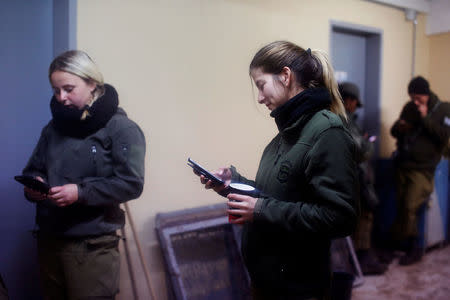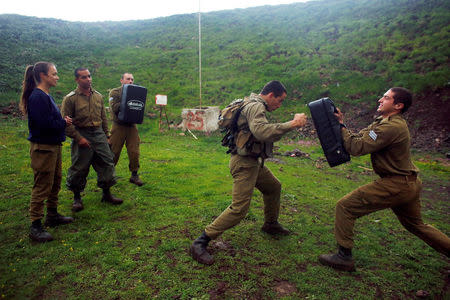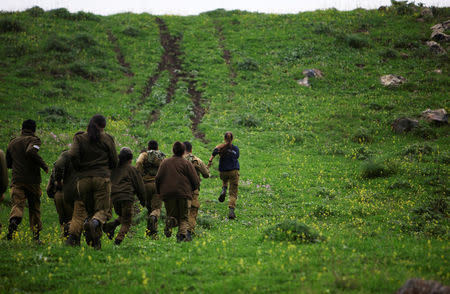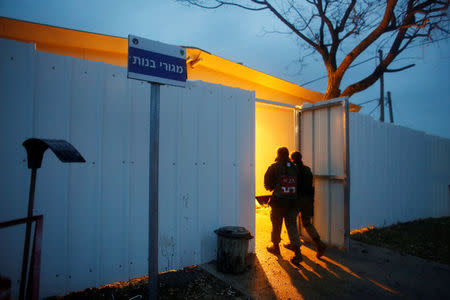Israel's women combat soldiers on frontline of battle for equality
By Yuval Ben-David ISRAELI MILITARY BASE, Golan Heights(Reuters) - Not far from the Syrian border, two Israeli soldiers - a man and a woman - faced off in a training session of Krav Maga, an Israeli self-defence technique. "I want you to be aggressive, give him the fight of his life," physical education officer Lotem Stapleton urged the woman, a soldier in the Haraam artillery battalion, the Israeli military's longest-running mixed-gender combat battalion. As the world marks International Women's Day on Wednesday, whose theme this year focuses on "women in the changing world of work", the Israeli military says it is ahead of the curve in providing combat roles for female soldiers. At an army base - which under military censorship rules could not be identified - in the Israeli-occupied Golan Heights, Stapleton shouted encouragement at a pack of 13 soldiers who confronted a stream of "enemy combatants" in a training circuit. "Today, 85 percent of (combat) positions are open to women. We are also talking about opening more and more positions," Stapleton said. The Haraam battalion began accepting women in 2000. Overall, female soldiers now make up 7 percent of the fighting ranks in the Israeli military, where men and women are conscripted at the age of 18. Men serve for three years and women for two. Israel's Arab citizens and ultra-Orthodox Jewish community are largely exempted from military service. "I think that the IDF (Israel Defense Forces) is very advanced by giving women equal opportunities," Lieutenant-Colonel Oshrat Bachar, an adviser to the office of the chief of staff on gender issues, told Reuters at the Defence Ministry in Tel Aviv. "I believe that we are much more advanced than other armies in the world because (service) is mandatory and of course because we believe in equal rights," she said. Rachel Fenta, a female combatant in the Haraam battalion, said she spent a year sitting at a desk before she became determined to join a fighting unit. "I wanted to test my limits," she said. Matan Paull, a commanding officer in the battalion, said female combatants were generally more creative and mentally flexible than their male counterparts. But he said the women tended to get injured more easily. Mai Ofir, another female member of the unit, would agree. "Our bodies aren’t built the same," she said. "But just as a guy can shoot a rocket, so can a woman." (Editing by Jeffrey Heller and Alison Williams)

 Yahoo News
Yahoo News 












